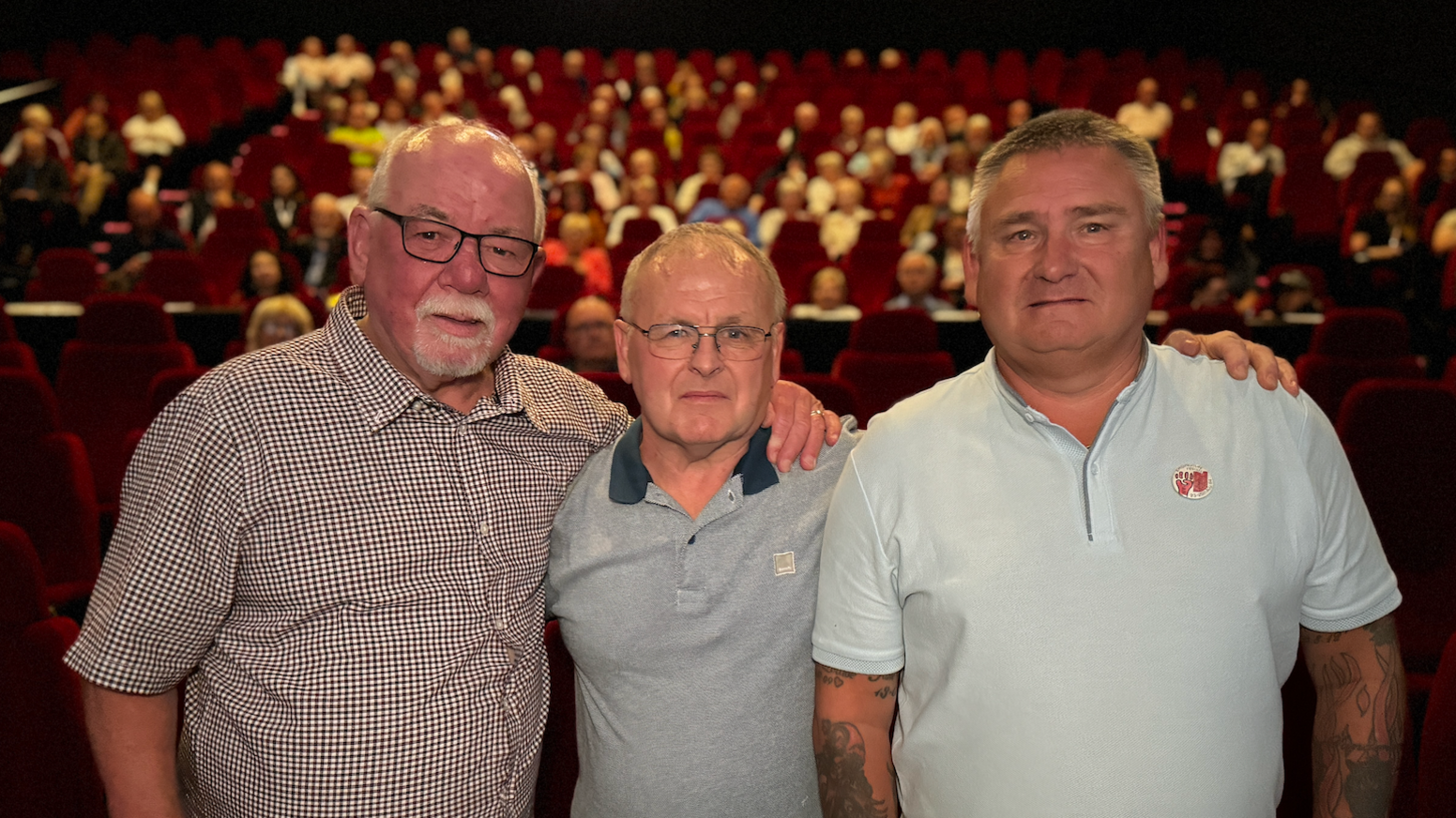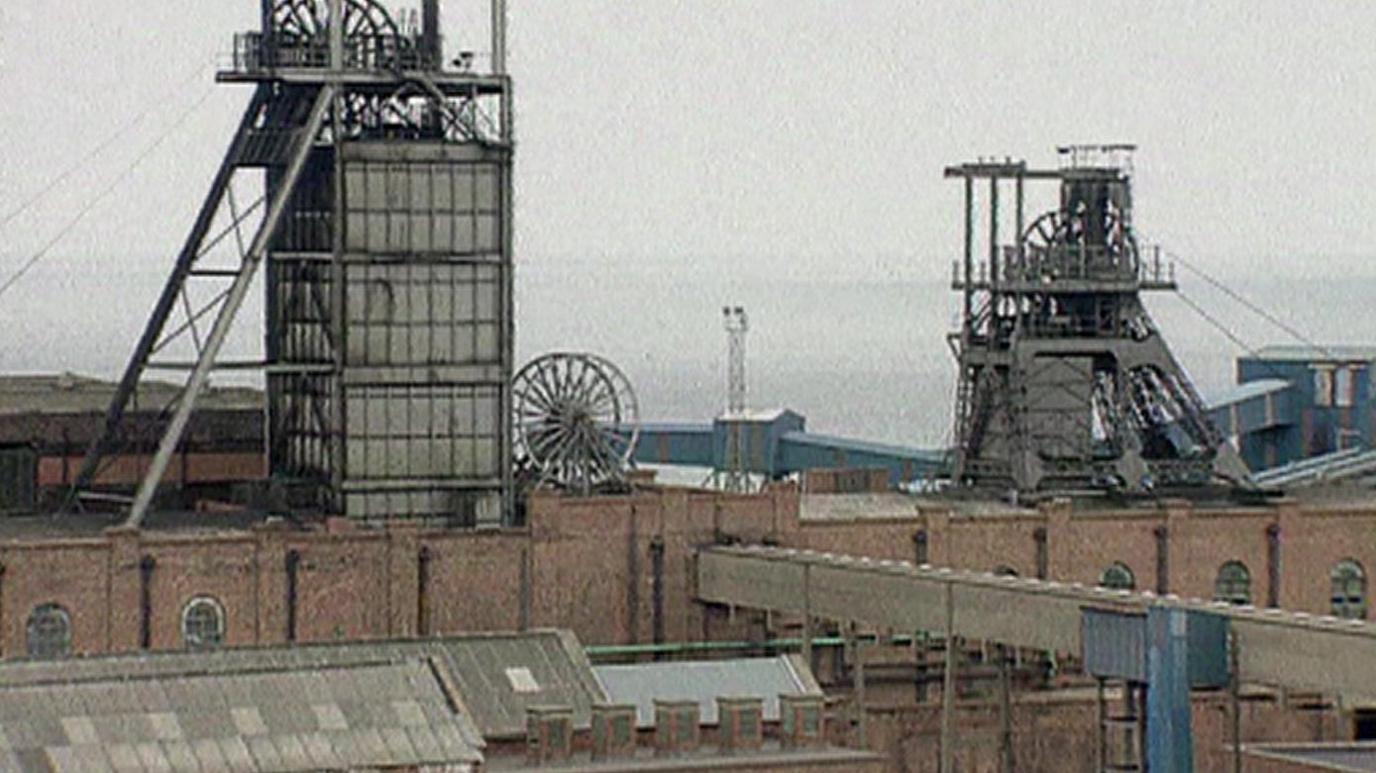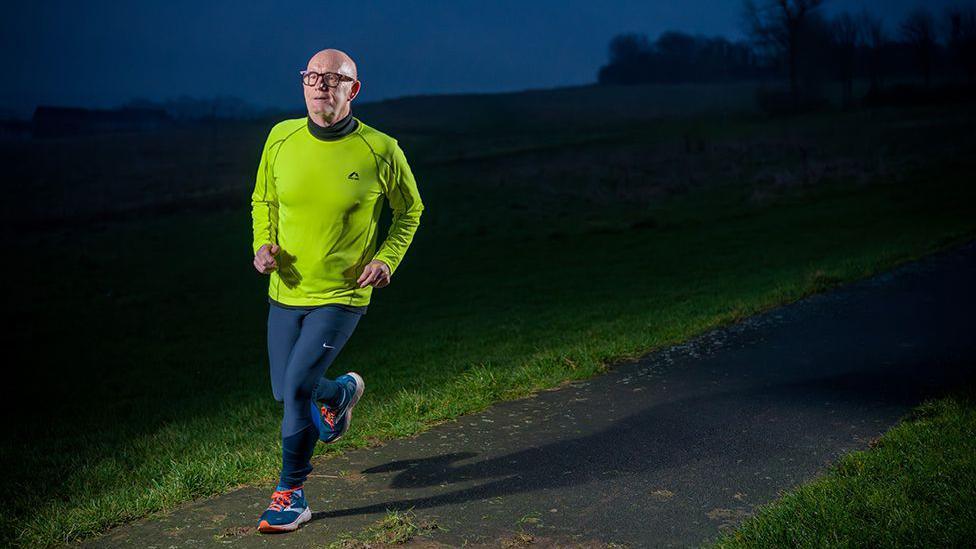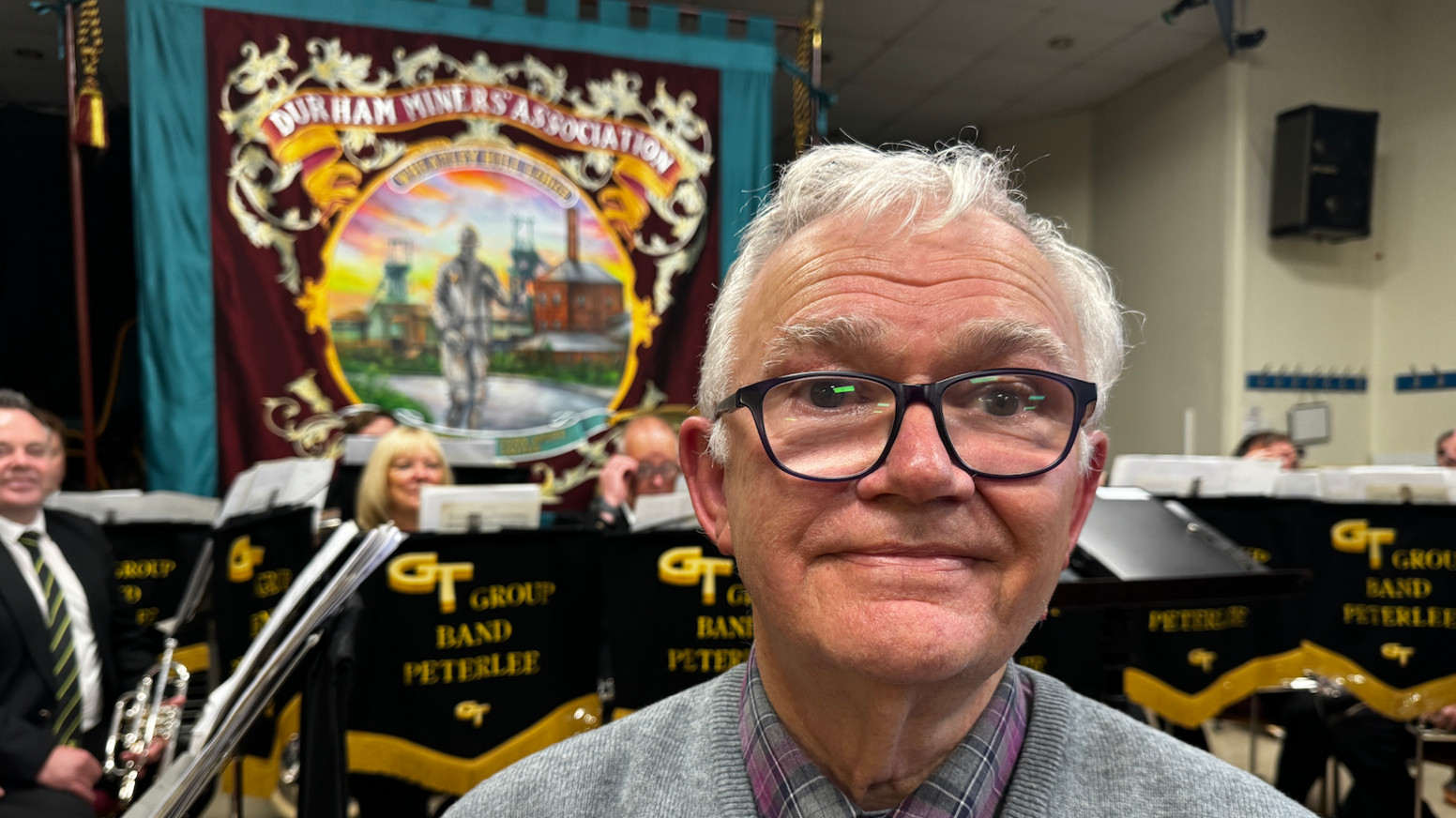New film tells story of final colliery workers

Walter Sherriff, Alexandre Balfour and Steve Fergus were among the last to work in each of their East Durham collieries
- Published
A film about the final miners to leave their shut-down collieries could be the "last opportunity" for them to tell their story, its producer warns.
Russell Smith, of Hartlepool, produced Last Men Standing, which features 15 miners who worked at the Blackhall, Horden and Easington pits in the 1980s and 1990s.
He said mining voices were gradually being lost through time and ill health, and wanted to get their stories "on record for future generations".
The 75-minute feature-length documentary premiered to miners and their families near Murton, County Durham, ahead of its full release in 2025.
It tells the stories of how mining communities were devastated by the closure of the East Durham pits, without any plan to replace the hundreds of lost jobs.

Easington Colliery produced its final lot of coal in 1993
The film also explores what life for each of the 15 men was like, before and after the closures, and remembers some of the lives the collieries claimed.
"These stories need to be told," said Alexandre Balfour, who worked at Easington colliery until its closure in 1993.
"The curtains are coming down on the way we used to live, there's less and less miners and really it's a drama that's coming towards an end."
'Ended up with nothing'
Steve Fergus, who also worked at the site until the very end, said it was "important" the "rest of the world" knew what whole communities went through.
He said: "The last few days were terrible. There was no work whatsoever on the east coast, all the houses were getting put up for sale. People left in their droves."
He said the effects on his village were profound, with locals being driven out to find employment elsewhere.
"Before the mine closed, every shop was open, doctors and dentists were open, but there weren't enough people to go to those places, so that eroded what we had, so we ended up with nothing.
“There's [still] anger that we were being deprived... and it's films like this that showcase just what it is, where we live and why we feel like that."

Russell Smith has spent the last 13 months working with Simon Hill to create the film
The film, co-produced by president of the Royal Photographic Society, Simon Hill, was inspired by a woman Mr Smith met at one of Mr Hill's art exhibitions.
She told him her father was a miner in South Wales.
Mr Smith said: "She explained her dad was a miner... and I said I'd always loved one of those NCB donkey jackets.
"The next thing I know, one arrives. Inside the pocket was a handwritten letter explaining that was her father's, who sadly passed away when he was 51."
He wondered how many of "these voices, and these stories" were being lost, as "people are dying from industrial disease".
"The life expectancy of a miner isn’t great, and each year goes by the stories and experiences, the cultural compact and everything, is being lost with it, so I thought let's launch a project that captures it originally," he added.
The film will be shown at several international and European film festivals later this year.
Follow BBC North East on X, external, Facebook, external, Nextdoor, external and Instagram, external. Send your story ideas to northeastandcumbria@bbc.co.uk
Related topics
- Published13 January 2024

- Published12 July 2024
